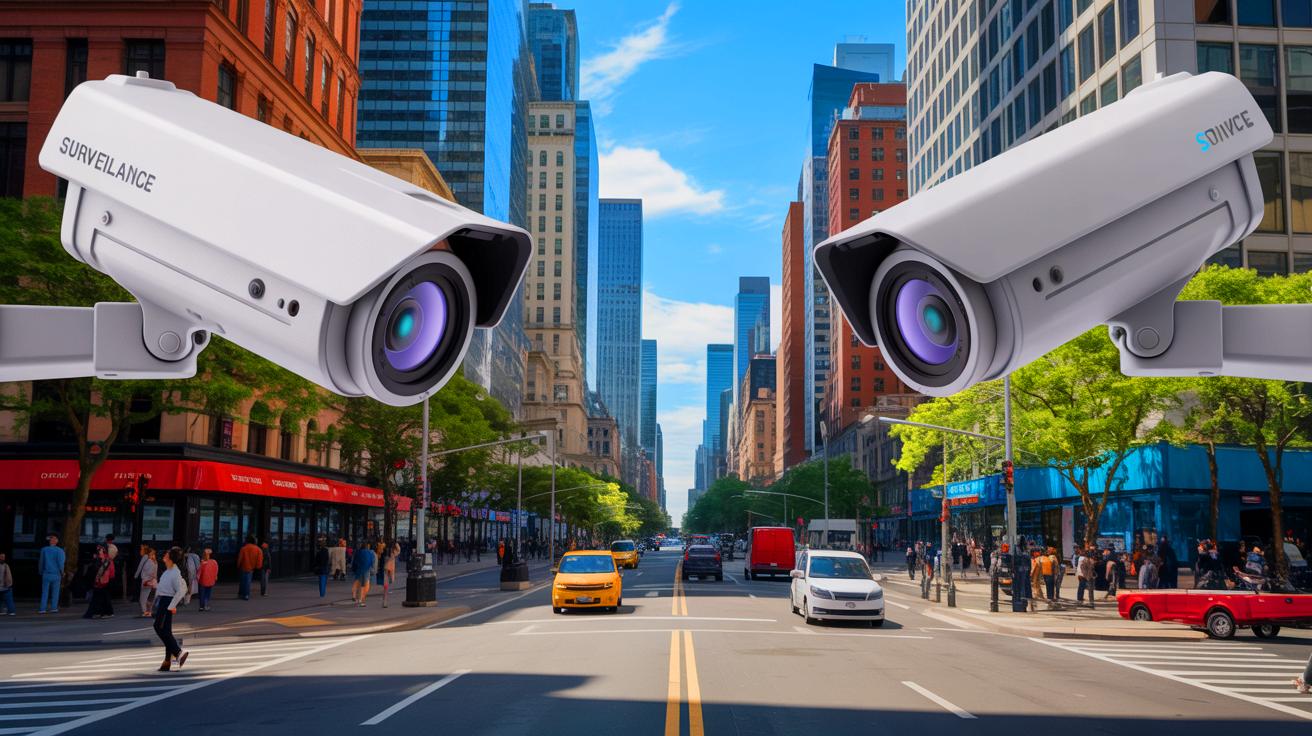IN A NUTSHELL
📈 Flock Safety aims to transform security nationwide with AI-powered surveillance systems.
🚔 Over 5,000 police departments and numerous companies have adopted Flock’s innovative technology.
⚖️ Civil liberties groups express concern about potential privacy violations and constant surveillance.
🌐 Flock’s expansion raises debates on balancing technological advancements with individual rights.
In the rapidly evolving world of security technology, Flock Safety, an American company, is setting ambitious goals to integrate its surveillance systems across the nation. From residential neighborhoods to bustling shopping centers, Flock is transforming security into a subscription service. At the intersection of public and private interests, the company’s model promises a new era where artificial intelligence (AI) plays a pivotal role in crime prevention. However, as the reach of AI-powered surveillance expands, questions about privacy and civil liberties remain at the forefront of public discourse.
The Genesis of a National Ambition
Flock Safety’s journey began with an unresolved burglary in a quiet Atlanta neighborhood. This incident sparked the realization for Garrett Langley, who saw the potential for technology to surpass traditional policing methods. In 2017, along with two former Georgia Tech classmates, Langley founded Flock Safety. Their initial prototype, a waterproof smartphone capable of reading license plates and sending data to a remote database, quickly gained traction with law enforcement agencies. This simple device laid the groundwork for what would become one of the largest surveillance networks in the United States.
According to Forbes, Flock is now valued at $7.5 billion. The company’s technology operates on a straightforward yet highly effective premise: saturating public spaces with fixed cameras and, more recently, autonomous drones capable of identifying tattoos or silhouettes from hundreds of feet away. The data collected—ranging from vehicle brands to suspicious routes—is analyzed and cross-referenced using AI tools. Langley claims this digital network already helps solve a million cases annually, highlighting the transformative potential of AI-driven surveillance.
A Web of AI Surveillance Expands Unchecked
The success of Flock Safety is as much about its technology as its commercial strategy. More than 5,000 police departments, 1,000 private companies, and countless neighborhood associations have adopted its services. In Dunwoody, near Atlanta, police monitor the city’s activity remotely from a screen-laden center, capable of detecting gunshots, transcribing 911 calls in real-time, and locating intervention units within seconds. In a California demonstration, an operator could observe two men playing baseball from hundreds of feet away with just a keyboard.
Flock has also capitalized on unconventional partnerships. Companies like FedEx and Lowe’s sometimes grant access to their video feeds, extending police coverage without direct public intervention. This system circumvents one of the primary challenges of traditional surveillance: the fragmentation of camera ownership, which makes image exploitation tedious. In this new model, each client can choose to share data with the police, blurring the lines between private space and public interest.
The New York Times notes that this approach aligns with a broader political trend where security becomes a federal concern. The deployment of the National Guard in some cities, funded directly by the state, underscores that the effectiveness of these systems is measured not only by numbers but also by the perception of control and presence they create. While some cities like Washington have seen a decrease in vehicle thefts, it remains difficult to isolate this improvement from other socio-economic factors.
A Contested Security Model Faces Legal Challenges
Despite the enthusiasm from its proponents, Flock Safety raises significant concerns. Several civil liberties organizations argue that constant surveillance violates the Fourth Amendment of the U.S. Constitution. The NGO DeFlock has mapped over 29,000 license plate-reading cameras, most of which belong to Flock. They also run a Discord server to coordinate local protests. In some counties, residents have vandalized or removed cameras. In Camden County, an elected official faced charges for dismantling a device without authorization.
The company has had to adapt its tools under regulatory pressure. In Illinois, an investigation revealed that police had shared Flock data with other states, targeting individuals suspected of violating local abortion or immigration laws. Since then, the company claims to have restricted data sharing between jurisdictions. However, as Futurism highlights, the ongoing expansion of these technologies fuels a growing controversy over the use of personal data in automated systems.
Criticism isn’t limited to activists. Flock’s former industry partner, Axon, known for its Taser devices and body cameras, severed ties, accusing Flock of anti-competitive practices. In response, Langley aims to offer a more affordable and efficient solution. This rivalry between two tech giants underscores the increasing tensions surrounding the privatization of public security.
Beyond Security: The Broader Implications of Flock’s Technology
Garrett Langley envisions a future where data collected through Flock’s systems enhances more than just security. He imagines using the information for traffic management, faster road repairs, and even urban planning. He argues that the technology could also contribute to improved quality of life. However, as Flock’s digital empire continues to grow, the line between innovation and intrusion becomes increasingly difficult to define.
As Flock Safety continues to expand its reach, the debate over the balance between security and privacy intensifies. The company’s ambitious plans and the potential of AI-driven surveillance present both opportunities and challenges for the future of public safety. How will society navigate the delicate balance between technological advancements and individual rights?
This article is based on verified sources and supported by editorial technologies.
Did you like it? 4.6/5 (22)

